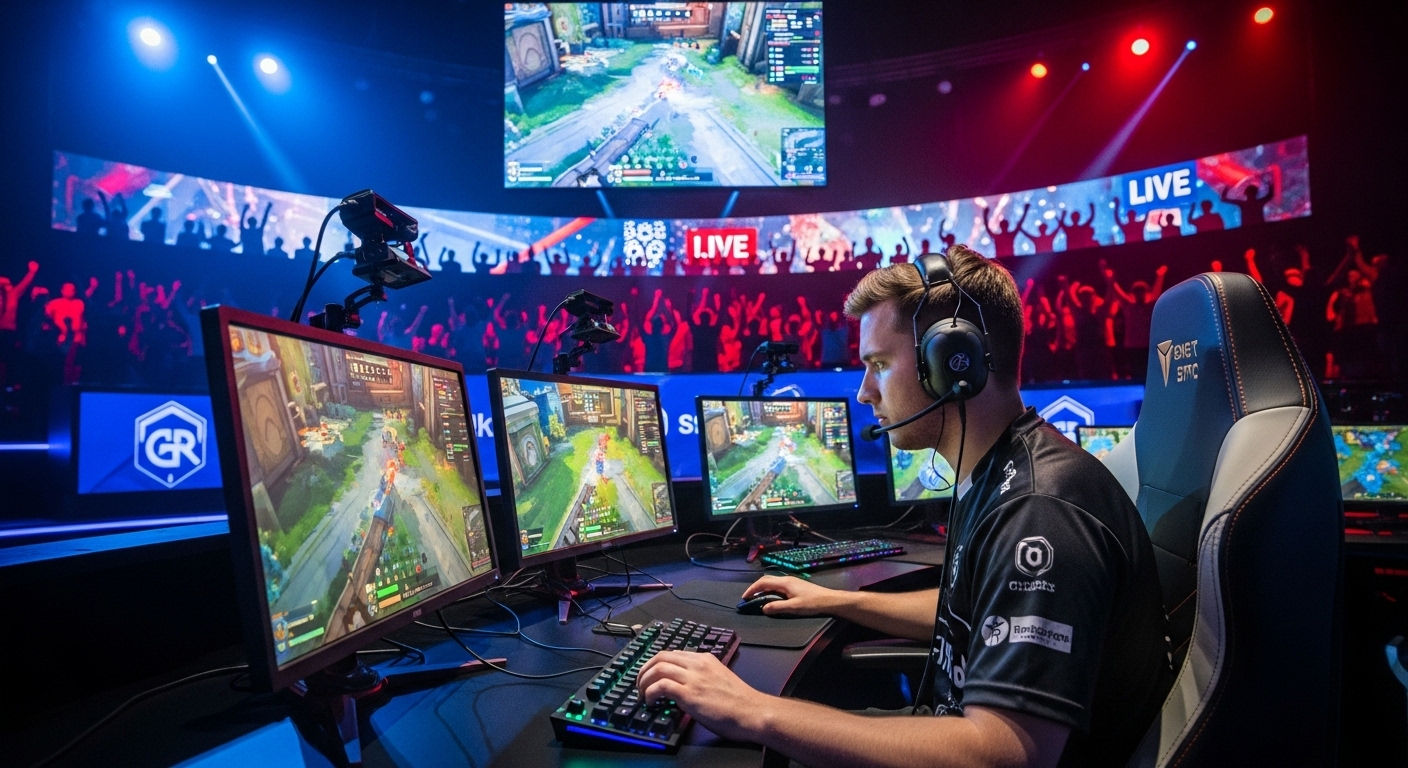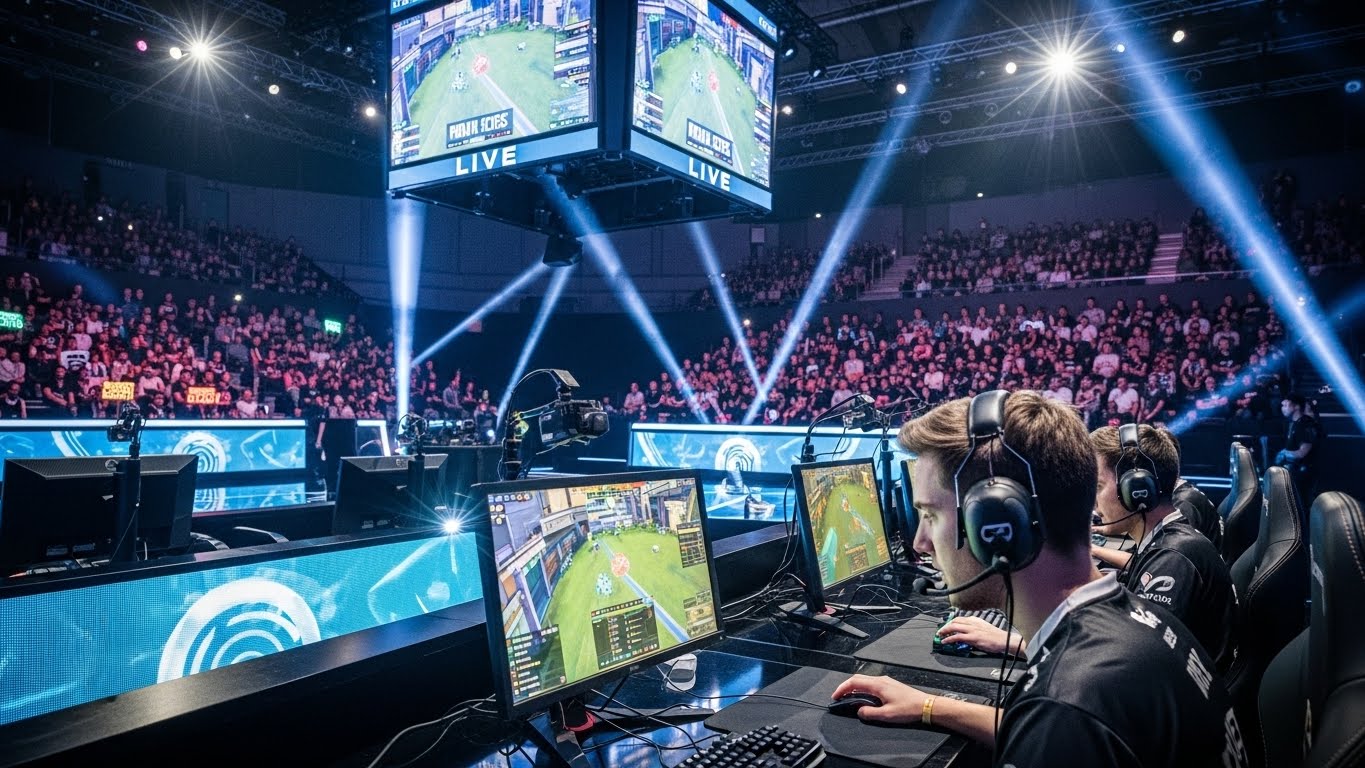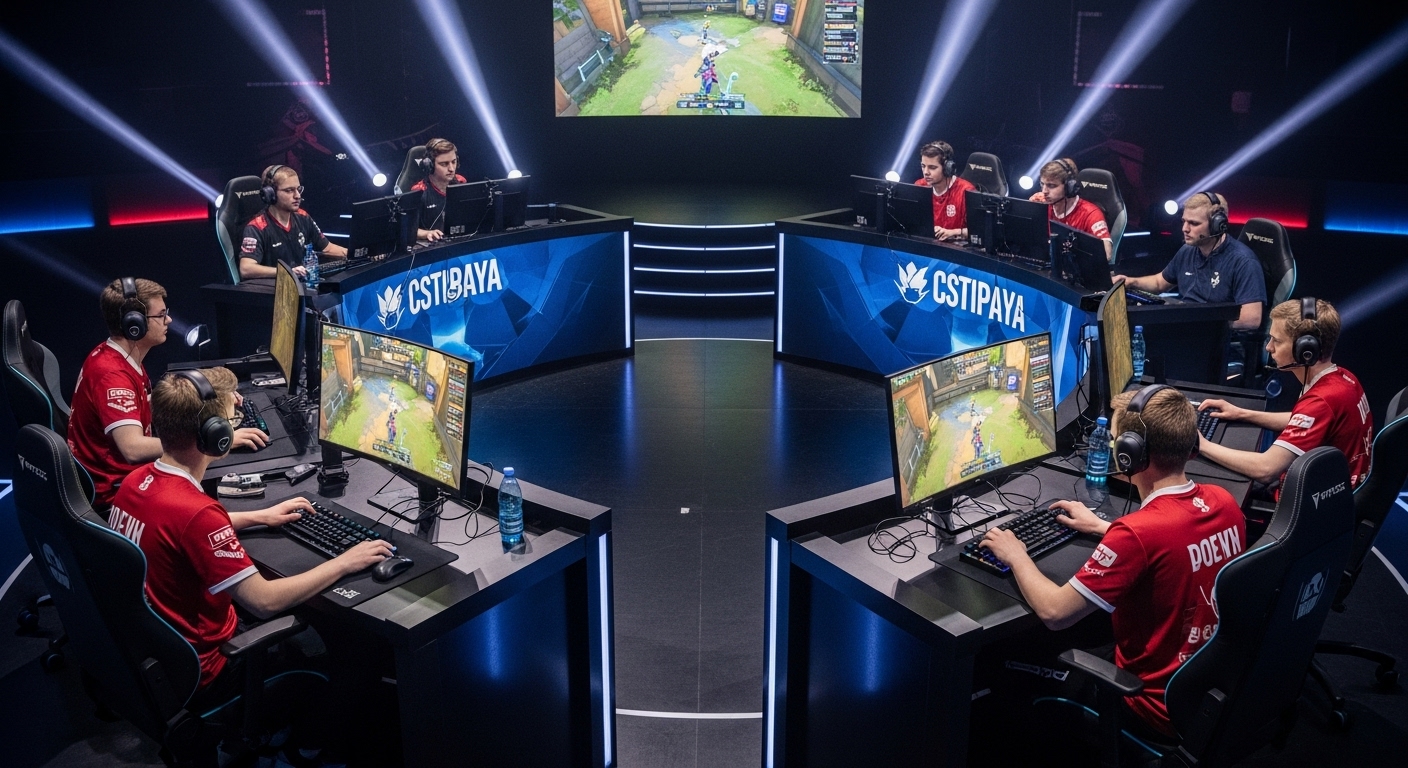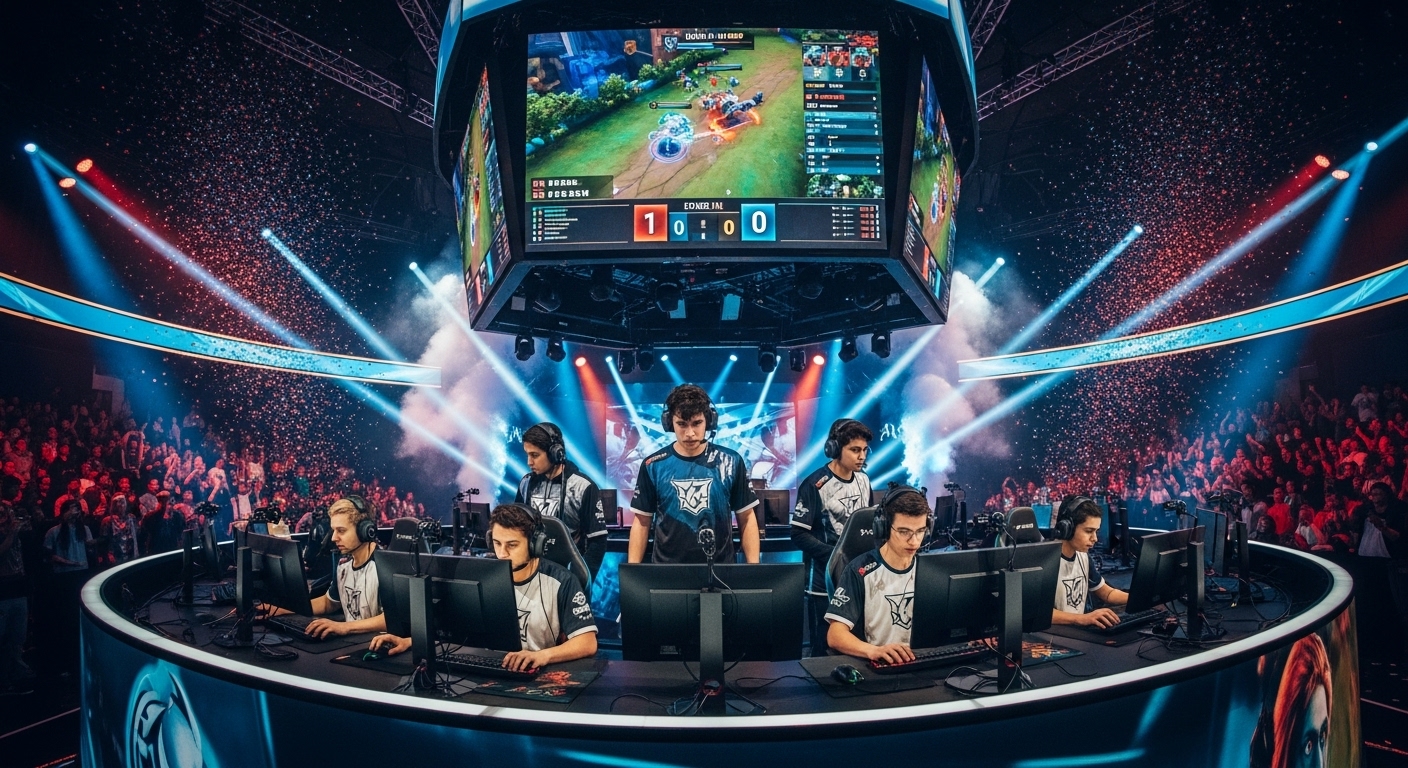Esports has rapidly evolved into a multi-billion-dollar industry, drawing millions of fans, players, and sponsors from around the world. From its humble beginnings in local LAN tournaments to massive global competitions with million-dollar prize pools, the world of competitive gaming has captured the attention of the masses. But as esports continues to grow, the question remains: what’s next for the future of this dynamic and ever-evolving industry?
In this blog post, we’ll explore some of the trends and advancements that are shaping the future of esports, from technological innovations to new business models and the rising popularity of grassroots tournaments. Let’s dive into what lies ahead for esports in the next decade.
1. The Rise of Virtual Reality and Augmented Reality
Esports in the Metaverse
One of the most exciting frontiers in esports is the integration of Virtual Reality (VR) and Augmented Reality (AR). As technology advances, immersive experiences in VR are becoming more accessible, and developers are exploring how these tools can transform competitive gaming. Imagine players in a VR setting, physically engaging in the game rather than simply controlling a character on a screen. VR could take competitive gaming to a whole new level, blending physical activity with digital skill, creating a truly immersive experience for both players and spectators.
Games like Beat Saber and Echo Arena are already tapping into VR’s potential in esports, and we are likely to see more high-profile VR esports titles in the future. With the development of VR headsets like the Oculus Quest and PlayStation VR, esports fans and players may soon be participating in matches that feel more like real-world sports. The integration of Augmented Reality (AR), which overlays virtual elements in real-world environments, also has the potential to change how esports events are broadcasted and experienced, making it more interactive for fans watching from home.
VR Esports Arenas
Imagine stepping into a virtual esports arena, where you, as a spectator, can move around the venue, interact with other fans, and even get up close to your favorite players. This future could be a reality thanks to VR and AR technologies. As esports arenas evolve, we could see fully immersive virtual stadiums for fans to experience major tournaments like never before.
2. The Convergence of Traditional Sports and Esports
Esports and Physical Sports Integration
As esports grows in popularity, the line between traditional sports and esports is becoming increasingly blurred. Major sports organizations like NBA, NFL, and FC Barcelona have already made investments in esports teams and tournaments. This convergence of physical sports and digital sports is only going to deepen in the coming years.
Expect to see more hybrid competitions where esports and traditional sports overlap. One example could be in games like FIFA or NBA 2K, where players compete in virtual versions of traditional sports. With physical sports leagues offering esports tournaments and digital competitions as part of their regular offerings, fans will be able to engage with their favorite sports teams both online and in person.
Esports as a Mainstream Sport
The recognition of esports as a legitimate sport by traditional sporting bodies is another significant development. Many countries are now offering college scholarships for esports athletes, and esports is even featured as a medal event at the Asian Games. This marks a turning point where esports can no longer be ignored as part of the larger sports ecosystem. Over the next decade, esports could very well achieve the same level of recognition and institutional support as traditional sports.
3. The Growth of Mobile Esports
Mobile Gaming’s Explosion
While PC and console gaming have traditionally been the main platforms for competitive esports, mobile gaming is rapidly catching up. In regions like Asia and South America, mobile esports is already a huge part of the landscape, with titles like PUBG Mobile, Mobile Legends, and Free Fire drawing millions of players and viewers. The mobile esports scene is expected to continue to expand globally, especially as mobile devices become more powerful and competitive games on smartphones improve in quality.
Mobile esports opens up opportunities for a broader, more diverse audience to engage in competitive gaming. Unlike PC or console games, mobile games are more accessible and affordable, making them easier for players across the globe to get into competitive gaming.
Competitive Mobile Esports Ecosystems
In 2025 and beyond, we are likely to see mobile esports tournaments that rival traditional esports competitions in scale. As mobile games become more refined and the mobile esports infrastructure improves, we could see major tournaments like the Mobile Legends Professional League or PUBG Mobile Global Championship grow into international juggernauts, drawing millions of viewers and sponsorship dollars.
4. New Business Models and Revenue Streams
The Emergence of NFTs and Blockchain Technology
One of the most buzzed-about trends in tech is the integration of NFTs (non-fungible tokens) and blockchain technology. Esports organizations are increasingly exploring how these technologies can enhance fan engagement, create new revenue streams, and provide opportunities for players to monetize their in-game items and achievements.
NFTs could revolutionize the way fans interact with esports teams and players. For example, fans could purchase exclusive digital collectibles, like skins, highlight reels, or limited-edition moments from a player’s career. These NFTs could then be traded or sold, creating a new economy within esports. Blockchain could also provide a more transparent and secure way to manage sponsorships, contracts, and player transfers.
Subscription Models and Streaming
As Twitch, YouTube Gaming, and other streaming platforms become the primary way fans consume esports content, we may see more subscription-based models emerge for exclusive content, behind-the-scenes access, and early viewing of tournaments. This model, which has worked for traditional sports (like NFL Game Pass), could further bolster the financial stability of esports organizations and content creators. Fans who are willing to pay for a premium experience will have access to exclusive features like in-depth analysis, personalized commentary, or even special interactions with players.
5. Esports as a Career Path: Increased Professionalization
More Career Opportunities in Esports
As esports becomes more mainstream, it is creating new career opportunities not just for players, but for coaches, analysts, commentators, content creators, event organizers, and marketers. In the coming years, we can expect more universities to offer specialized programs in esports management, game development, and digital media.
The increasing professionalization of esports means that more players are looking at it as a long-term career path. Instead of a hobby or part-time pursuit, esports athletes are treated with the same level of respect and attention as traditional athletes. They are receiving better coaching, improved training regimens, and mental health support to help them compete at the highest levels.
Esports as a Global Career Opportunity
Esports is no longer limited to specific regions. Professional gamers are now emerging from countries all over the world. As the scene grows, the possibility of global esports leagues, where top players from every corner of the planet compete for the title, becomes a very real prospect. This will create even more job opportunities for esports professionals in the media, sponsorship, and management sectors.
6. The Future of Esports Broadcasting
Immersive Viewing Experiences
As the industry matures, the way esports is consumed will continue to evolve. Traditional broadcasts are already enhanced with features like live statistics, player bios, and interactive fan voting. In the future, we could see further innovations that take viewer engagement to the next level.
One potential development is immersive broadcasts using VR or AR, where fans could feel like they are part of the action in the stadium or arena. Imagine being able to watch an esports tournament from the perspective of a player, or from the comfort of a virtual audience seat, all while interacting with other fans. This could make esports viewing even more exciting and engaging.
Interactive and AI-driven Commentary
Artificial Intelligence (AI) is already playing a role in esports, from player analytics to in-game decision-making. In the future, AI could also help revolutionize how commentators work by providing real-time statistics, predictive insights, and even customized commentary tailored to the viewer’s preferences.
Conclusion: A Bright Future for Esports
The future of esports is incredibly bright, with new technologies, expanding global audiences, and more career opportunities shaping an exciting and dynamic industry. As esports continues to evolve, fans, players, and organizations will work together to create a more immersive, engaging, and professional environment for competitive gaming. Whether through new business models, technological advancements like VR and AR, or the merging of traditional sports with digital competitions, one thing is certain: esports is here to stay, and it’s only going to get bigger and better.
The next decade promises to be an exciting time for both fans and participants alike as we witness the industry reach new heights, redefine entertainment, and become a true global spectacle.




